
Incorporating organic data into your keyword research strategy can significantly enhance your understanding of where you currently stand and where you can improve. Learning how to do keyword research is essential for SEO success. Here’s a streamlined approach to mastering this skill using tools like Google Keyword Planner and Semrush’s Organic Research and Keyword Magic Tool. By integrating these resources, you can efficiently find the keywords that will help elevate your content’s visibility and performance online.
Checking Your Existing Rankings
To get a snapshot of your website’s current performance, use Semrush’s Organic Research tool. Input your domain, specify your target location, and initiate a search.

Navigate to the Positions report to see where your site ranks.
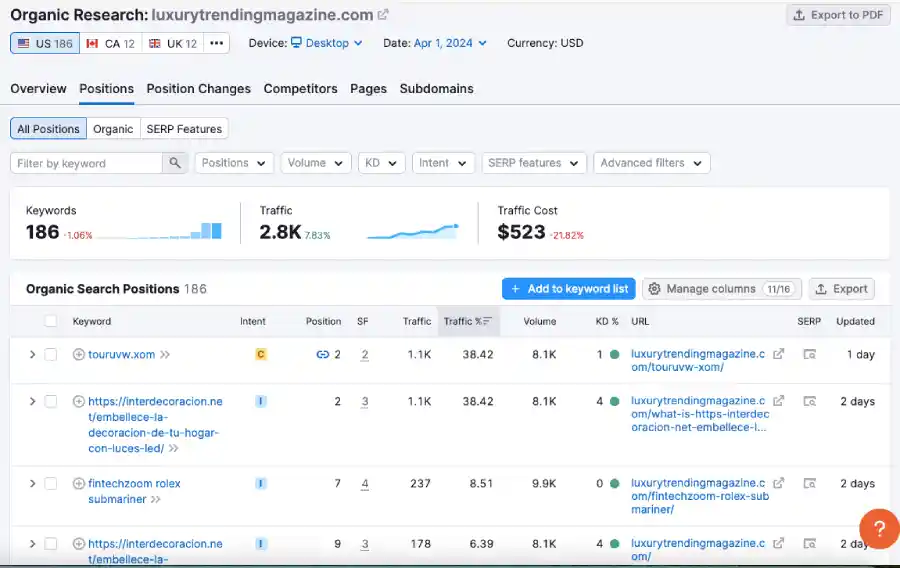
If you notice icons in the “Position” column, it indicates your presence in SERP features, like the featured snippet symbolized by a crown icon, indicating top placement.
Like this:

Finding New Keywords with Keyword Magic Tool
After understanding your current rankings, the next step is to discover relevant keywords you’re not ranking for yet:
Use the Keyword Magic Tool: Enter a seed keyword, select your target location, and search.
You’ll find keywords categorized into:
- All Keywords: A mix of broad, phrase, exact match, and related keywords.
- Broad Match: Variations of your seed term in any order.
- Phrase Match: Your exact seed term in any order.
- Exact Match: Your exact seed term in the specified order.
- Related: Keywords leading to similar search engine results as your seed keyword.
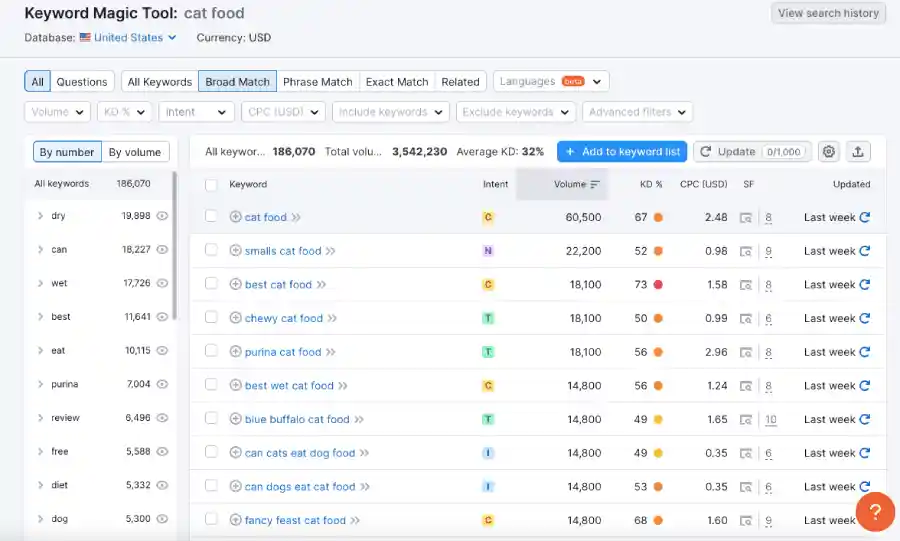
Refine Your Search: Filter results to include or exclude terms relevant to your niche. For example, a pet retailer might focus on “raw” or “natural” and exclude brands they don’t carry, such as “royal canin.”
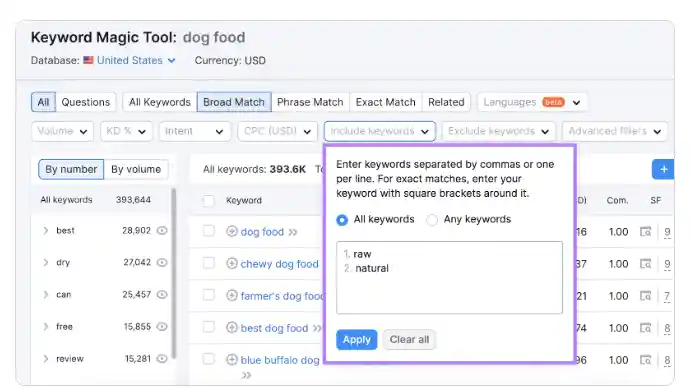
A dedicated filter for question keywords is also available.
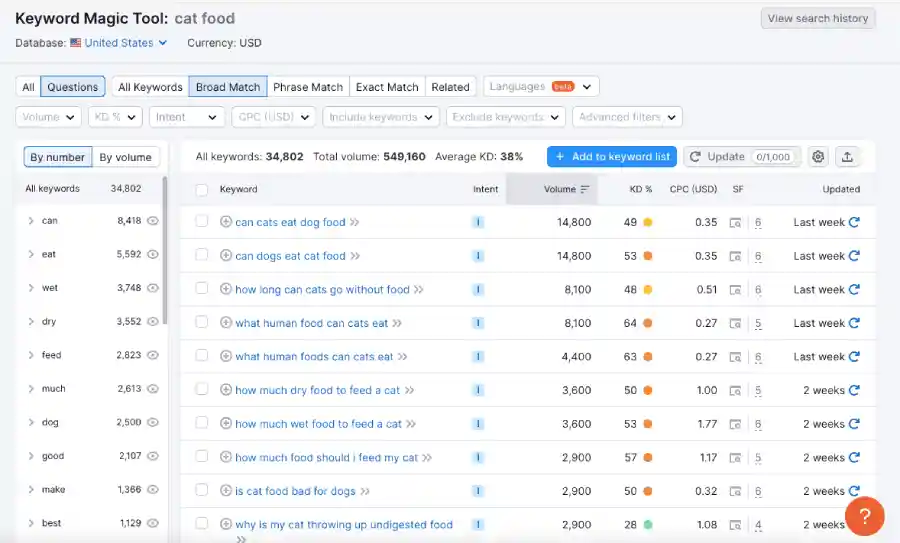
Conducting a Keyword Gap Analysis
To uncover valuable keywords your competitors rank for but you don’t, perform a keyword gap analysis:
Use Semrush’s keyword gap tool, Input your domain and up to four competitors. You can select competitors manually or use the tool’s suggestions.
Analyze the data after choosing your location and clicking Compare.
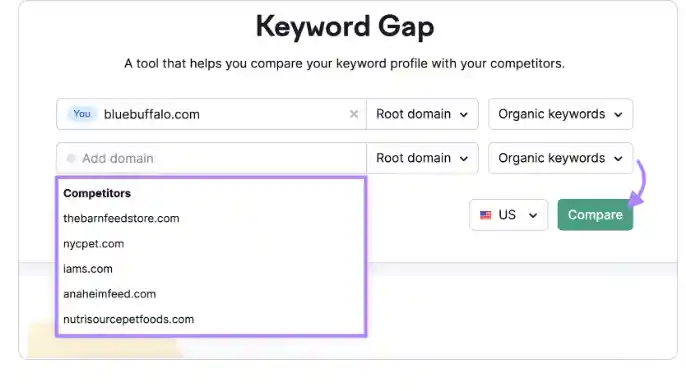
Explore the missing section in the keywords table.
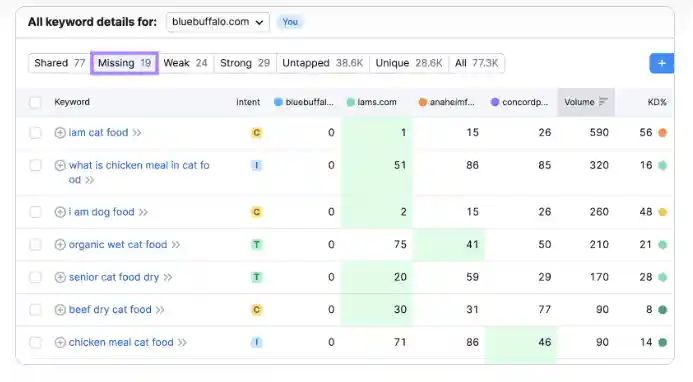
This highlights keywords all competitors rank for but you don’t, pointing to highly relevant opportunities. For potentially valuable but less relevant keywords, check Untapped.
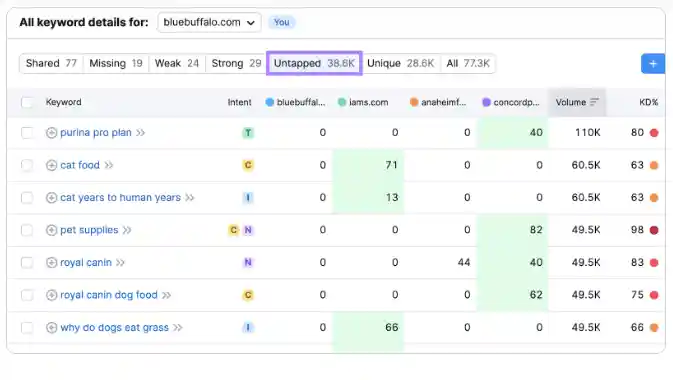
Leveraging Search Suggestions
Finally, don’t overlook the power of search engine suggestions. These are real queries by users, providing a direct insight into the search intent and variations of your main keywords. By incorporating these suggestions, you ensure your keyword list is not only extensive but also aligned with user behavior and trends.
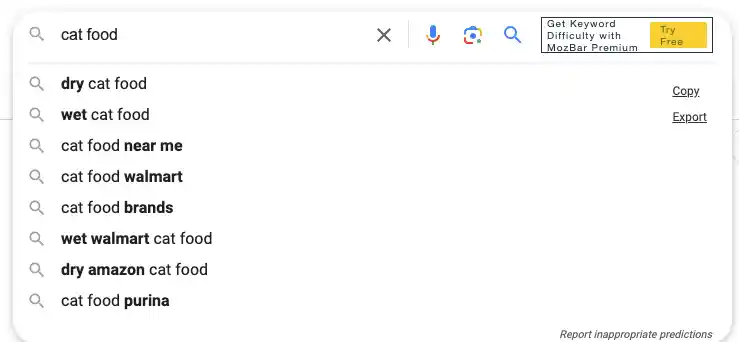
You can also find keywords from the people aslo ask section.
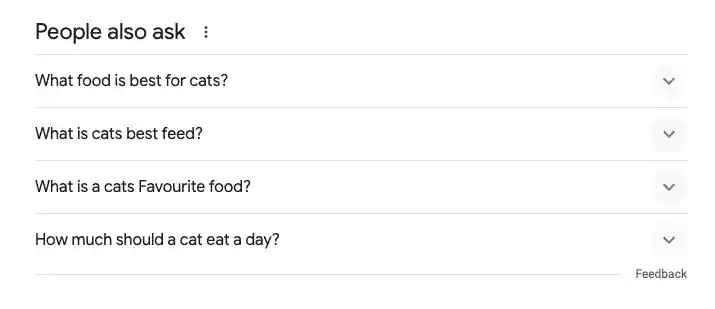
Another way of finding free keywords is the related searches tab in google search.
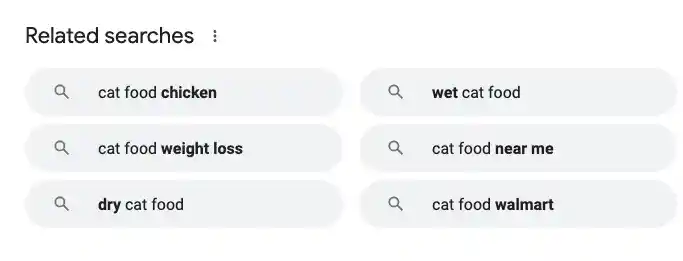
Google Keyword Planner
Google Keyword Planner (GKP) is a popular free tool you can use to find keywords. It’s designed for people who want to run paid ads on Google, but it’s also great for finding keywords for search engine optimization (SEO).
Here are some keyword ideas GKP gave me for the basic keyword “cat food”:
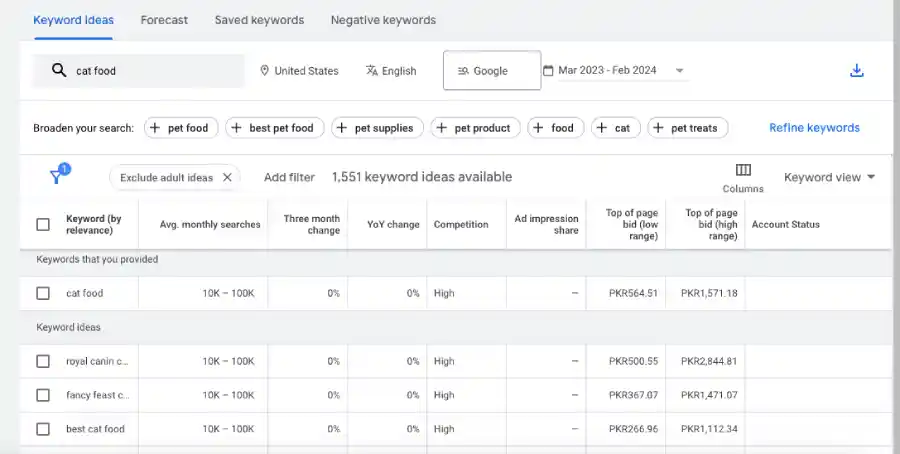
It’s worth mentioning that GKP can suggest keyword ideas that might not include your original keyword. For example, it might suggest “percolator.” If you’re not really into coffee, you might not know this word relates to it. This shows how GKP can be handy for finding unexpected keyword ideas.
If you find an interesting keyword like “percolator,” you can use it as a new starting point. Put it into GKP and see what other new keywords it suggests.
How to Do Keyword Research Conclusion
By methodically applying these strategies—checking existing rankings, exploring new keywords, conducting gap analyses, Google keyword planner, and leveraging search suggestions—you can develop a robust keyword strategy that targets areas of improvement and capitalizes on untapped opportunities. This holistic approach ensures you cover all bases, from understanding your current position to identifying new, relevant keywords and understanding the competitive landscape.
I hope this guide has helped you learn how to do keyword research.




Pingback: What is On-Page SEO? A Detailed Guide - Vlineperol